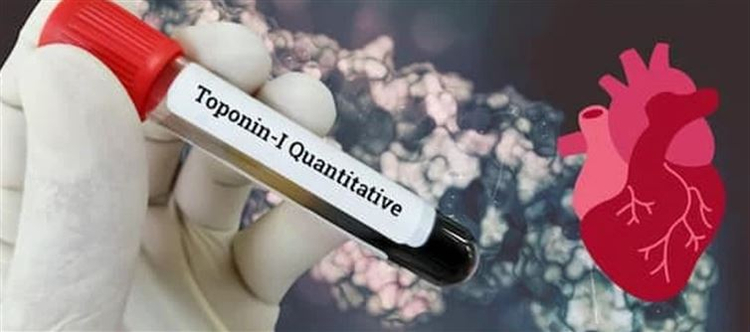
The study, which was funded by the british heart Foundation and headed by experts from the london School of Hygiene & Tropical Medicine, examined the medical records of more than 62,000 people in Europe, North America, and Australia. Troponin levels and other traditional risk variables, including age, blood pressure, cholesterol, diabetes, and smoking habits, were measured by researchers during a ten-year period.
What Is Troponin?
The heart muscle cells contain a protein called troponin. Troponin enters the bloodstream when there is injury to the heart, even if it is subtle or silent. Although troponin tests are now used in hospitals to confirm heart attacks after they occur, this study indicates that, like cholesterol testing, they could be a game-changing preventive tool when used in routine check-ups.
Professor Anoop Shah, the study's principal author, stated that "troponin, even in the normal range, is a powerful indicator of silent heart muscle damage." "The test provides an extra layer of information that boosts our accuracy when predicting people's cardiovascular risk."
Improved Risk Identification, Particularly for the 'In-Between' population
To determine a person's risk of having a heart attack or stroke within the next ten years, doctors usually utilize an algorithm that combines several health indicators. However, those in the intermediate risk group—those who are not low-risk but are not deemed high-risk enough to start statins or other preventive treatment—are difficult for this model to account for.
According to the study, risk prediction models' accuracy increased by up to fourfold when troponin levels were included. Troponin testing may move those at intermediate risk into the high-risk group, making them eligible for preventive therapy. According to the troponin results, almost 8% of individuals in the intermediate-risk category were reclassified as high-risk, which might potentially avert one heart attack or stroke for every 500 screened.
Affordable And Accessible
Experts claim it is feasible to incorporate this instrument into regular health screenings in general practice clinics, given each test costs only £5. Dr. Spencer Keene of the university of Cambridge stated, "Given how inexpensive and informative this test is, it could transform how we identify and treat cardiovascular risk."
Although the study concentrated on high-income nations, researchers agree that further research is necessary to evaluate its applicability in lower-income contexts, such as India.
Why This Matters for India
India is witnessing a surge in heart-related illnesses, with heart disease now the leading cause of death in the country. Collated data from various studies shows that:
In India, a heart attack claims the life of one person every 33 seconds. indians under 50 are more vulnerable, and they frequently don't exhibit the typical signs.
Cardiovascular diseases (CVDs) account for more than 28 percent of all deaths in India. Approximately 25–30% of persons in metropolitan areas have high cholesterol.
Nearly 25% of indians have elevated total cholesterol levels (>200 mg/dL), according to the WHO.
Life can be saved by early identification of cardiac disease, particularly in asymptomatic people. Experts feel that a straightforward, affordable test like troponin might serve as a front-line weapon in the fight against heart disease in a nation with an overwhelmed healthcare system.




 click and follow Indiaherald WhatsApp channel
click and follow Indiaherald WhatsApp channel